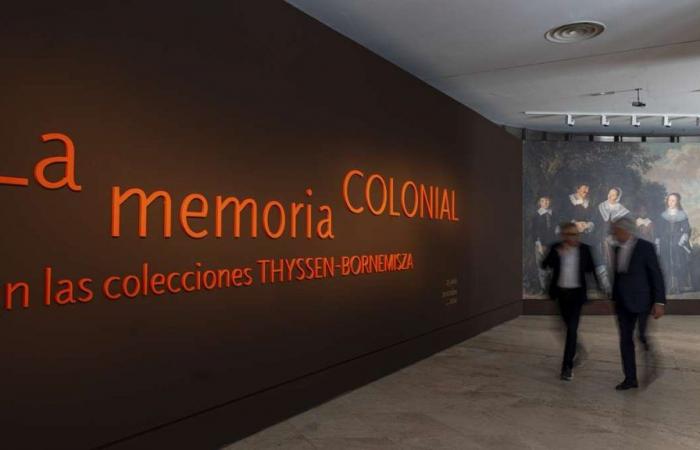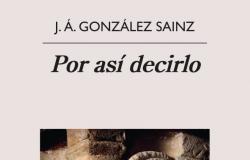
Several people visit the exhibition ‘Colonial memory in the Thyssen-Bornemisza collections’, an exhibition that addresses the role of museums and the works they house in the context of the creation and legitimation of the Eurocentric story, presented this Monday at the National Museum Thyssen-Bornemisza of Madrid. EFE/ Daniel Gonzalez
Photo: EFE – Daniel Gonzalez
Its director, Guillermo Solana, assured this Monday that, however, this is not an “automatic synonym of restitution.” ‘Colonial memory in the Thyssen-Bornemisza collections’ is the title of an exhibition that highlights the consequences of colonialism and its presence in Western art through idyllic images that mask inequality and violence.
An exhibition that “has nothing to do with any current political situation” but “comes from very far away,” Solana stressed in the presentation. The debate that arose earlier this year after the Spanish Minister of Culture, Ernest Urtasun, highlighted the need to overcome in state museums “a colonial framework or one anchored in gender or ethnocentric inertia.”
“I have been at the Thyssen for 19 years and I have never received direct or indirect instructions, suggestions or indications from a member of the Government,” stressed Solana, for whom the debate on the decolonization of museums “comes from very far away.” The origin of the exhibition, said Juan Ángel López-Manzanares, one of the four curators, arose in 2019, the year in which the International Council of Museums (ICOM) proposed how to alleviate Eurocentric biases in Western museums. The exhibition, which will remain open until October 20, brings together 58 works.
A cameraman takes images of the exhibition ‘Colonial memory in the Thyssen-Bornemisza collections’, an exhibition that addresses the role of museums and the works they house in the context of the creation and legitimation of the Eurocentric narrative, presented this Monday at the Thyssen-Bornemisza National Museum in Madrid. EFE/ Daniel Gonzalez
Photo: EFE – Daniel Gonzalez
Through six thematic sections, Thyssen addresses this rereading of his works that respond to fundamental questions about decolonization: extractivism and appropriation, the racial construction of the other, slavery and colonial domination, the escape to new “arcades”, the body and sexuality and resistance and marronage.
In this way, it draws attention to the presence of Africans in Madrid in the 17th century in a painting by Jan van Kessell III or to the exploitation of natural resources and the abuse of human labor in the colonial system in works by Paul Gauguin or Pablo Picasso.
It also analyzes the “racial hierarchization of the other” and “scientific racism” in which Europe claimed cultural supremacy, with works by Eugène Delacroix or Karl Bodmer, or the idealized vision of new territories and the sexualization of non-Western women. , in a painting by Otto Mueller.





